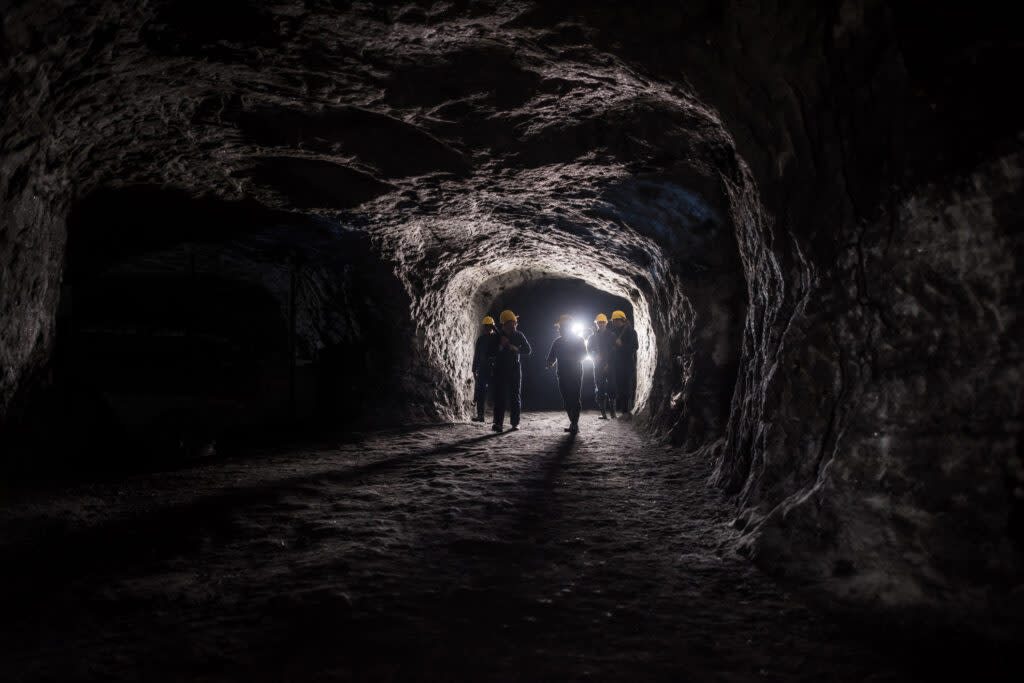Mine safety advocates urge Senate committee to do more to help miners with black lung disease

A new federal rule is aimed at reducing coal miners' exposure to silica dust, a leading cause of black lung disease (Getty Images).
The U.S. Senate committee on Health, Education, Labor and Pensions heard from mine safety advocates Wednesday about ways to make mines safer and help those who develop black lung disease get the health care and disability benefits that they deserve.
The hearing comes weeks after the Mine Safety and Health Administration issued a rule limiting the levels of silica dust allowed in operating mines and requiring mine operators to monitor for it. Silica dust exposure can lead to a particularly severe form of black lung disease
Testifiers said that while the rule was a positive step, Congress could do more to prevent future cases of black lung and ensure miners who do get sick can access health care and disability funds.
Dr. Drew Harris, the medical director of the largest black lung clinic at the University of Virginia, the largest such clinic in the country. He shared the story of one of his patients, whom he referred to simply as Paul.
Paul worked in a mine for eight years until a roof collapse rendered him unable to continue mining. Years later, he began having trouble breathing and was shortly diagnosed with black lung.
“He applied three times for black lung benefits, but was denied benefits each time,” Harris said.
According to Harris and other testifiers, Paul’s story is not unique. It took several years of battling for them, but Paul ultimately did get benefits, which include a monthly stipend and health care.
“The black lung benefit system as currently designed now does not work for miners like Paul,” Harris said.
In many cases, sick miners struggle to get legal representation when appealing a denial of black lung benefits. And it can be difficult to prove that the disease is severe enough to qualify for those benefits, especially with so few doctors in the rural areas where the disease is most common, with doctors who specialize in the disease in short supply.
According to other testifiers, miners who are denied benefits often face challenges from well-heeled coal companies who employ attorneys to fight their claims, and are financially disincentivized from helping them.
“A coal miner who is sick and can’t work is trying to get benefits against an attorney who is making $400,000 a year,” said Cecil Roberts, President of the United Mine Workers Association and a former miner. “They have access to doctors from all over the United States, and that coal miner doesn’t have that.”
Roberts also noted that attorneys specializing in appealing denials of black lung benefits can be hard to find.
Moreover, according to lawmakers and testifiers, federal funds for disabled miners are proving insufficient. Typically, mine operators and their insurance companies are responsible for paying disability funds when a miner contracts black lung. But when mine operators are unable to pay for reasons like bankruptcy, the tab falls to the federally operated Black Lung Disability Trust Fund.
“This fund has been grossly mismanaged, where its total liabilities exceeded its assets by billions of dollars,” said Sen. Mike Braun (R-Ind.). “It’s no good. It’s not going to be there for the people who need it.”
Cindy Brown Barnes is the managing director of the Government Accountability Office’s Education, Workforce and Income Security team. She testified that an increase in the number of young miners contracting black lung disease, a large number of coal company bankruptcies and a long history of borrowing money have left the fund straining at the seams.
“The trust fund has serious financial challenges,” Barnes said. “Based on the Department of Labor’s projection, the trust debt could exceed $13 billion by 2050.”
One proposal to alleviate some of these issues is a bill put forward by committee member Sen. Bob Casey (D-Pa.) known as the Black Lung Benefit Improvement Act. Testifiers urged its passing.
The bill would require better imaging for miners, which, according to Harris, would make diagnosis of black lung disease easier and more difficult to dispute. It would also raise sick miners’ monthly stipends in line with inflation, provide miners with attorneys fees when their cases hit certain benchmarks, ban lawyers representing coal companies from withholding information that may help miners secure their claims and require the Department of Labor to come up with a way to address the backlog of claims.
“My bill will ensure that every coal miner who is suffering from black lung disease receives the benefits that they and their families are entitled to,” Casey said in a statement Wednesday. “With the most serious black lung cases still on the rise, we owe it to our miners to make damn sure they get the care and benefits they’ve earned.”
Pennsylvania Sen. John Fetterman (D-Pa.) is a co-sponsor of Casey’s bill, and Rep. Matt Cartwright (D-Pa.) has introduced a similar bill in the House. Neither bill has been taken up in committee yet.
Roberts also recommended lawmakers codify the new silica dust rules into law.
“If we have a change in leadership at MSHA or Secretary of Labor, we might see this rule changed and we’ll be right back where we were,” Roberts said. “If it’s a good rule it certainly should be a good law.”
The post Mine safety advocates urge Senate committee to do more to help miners with black lung disease appeared first on Pennsylvania Capital-Star.

